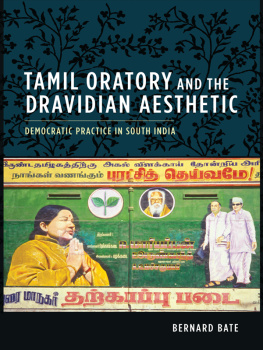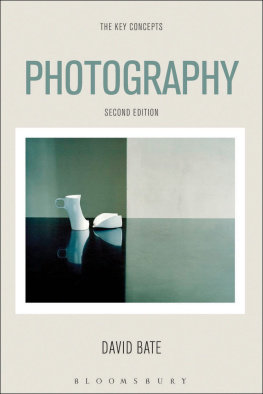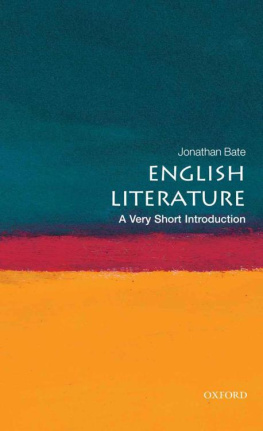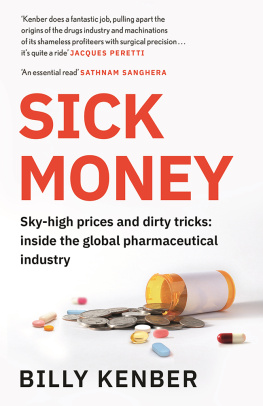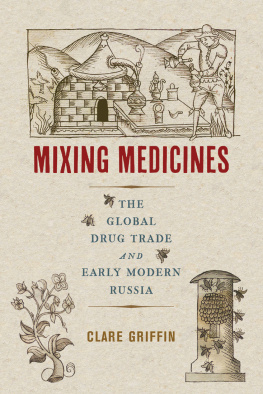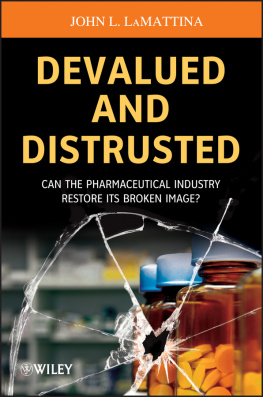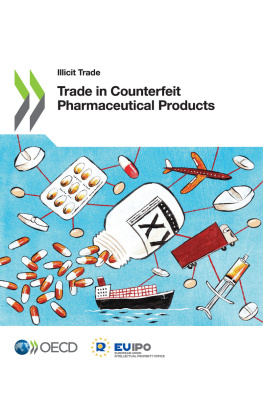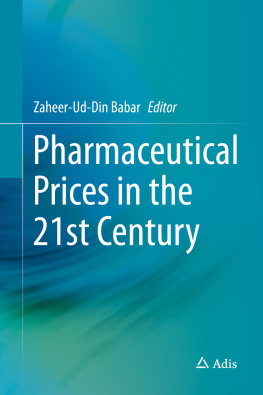Bate - Phake: the deadly world of falsified and substandard medicines
Here you can read online Bate - Phake: the deadly world of falsified and substandard medicines full text of the book (entire story) in english for free. Download pdf and epub, get meaning, cover and reviews about this ebook. City: Washington;D.C, year: 2014, publisher: AEI Press, genre: Politics. Description of the work, (preface) as well as reviews are available. Best literature library LitArk.com created for fans of good reading and offers a wide selection of genres:
Romance novel
Science fiction
Adventure
Detective
Science
History
Home and family
Prose
Art
Politics
Computer
Non-fiction
Religion
Business
Children
Humor
Choose a favorite category and find really read worthwhile books. Enjoy immersion in the world of imagination, feel the emotions of the characters or learn something new for yourself, make an fascinating discovery.

Phake: the deadly world of falsified and substandard medicines: summary, description and annotation
We offer to read an annotation, description, summary or preface (depends on what the author of the book "Phake: the deadly world of falsified and substandard medicines" wrote himself). If you haven't found the necessary information about the book — write in the comments, we will try to find it.
Bate: author's other books
Who wrote Phake: the deadly world of falsified and substandard medicines? Find out the surname, the name of the author of the book and a list of all author's works by series.
Phake: the deadly world of falsified and substandard medicines — read online for free the complete book (whole text) full work
Below is the text of the book, divided by pages. System saving the place of the last page read, allows you to conveniently read the book "Phake: the deadly world of falsified and substandard medicines" online for free, without having to search again every time where you left off. Put a bookmark, and you can go to the page where you finished reading at any time.
Font size:
Interval:
Bookmark:
Roger Bate spent years on the trail of stolen counterfeit and substandard medicines in Asia, Africa, and the Middle East, learning the anatomy of the nebulous, far-reaching black market that has caused countless deaths and injuries around the world. He has undertaken field research on fake medicines using handheld spectrometers and laboratory research using basic and sophisticated techniques. He has studied the laws and economics affecting the medicine trade and has published widely in the peer-reviewed scientific, legal and economic literature, including in leading journals such as the Lancet, the Journal of Health Economics, the Journal of International Criminal Justice and the Malaria Journal. He has published nearly one hundred articles on the topic in popular media outlets including the New York Times, the Washington Post and the Wall Street Journal.
Many individuals and organizations have generously helped me; no private investigator did more than Suresh Sati, and no regulators did more than the two successive drug regulators from Nigeria, Doctors Dora Akunyili and Paul Orhii, both of whom have suffered death threats on account of their work (a bullet even grazed Dr. Akunyilis head). There are many more people to whom I owe a lot and without whom much of this book could not have been written. I would like to acknowledge them, but many would not thank me for compromising their anonymity in the intelligence community, which is increasingly vital for combating the traders of dangerous drugs.
Dr. Patrick Lukulay of United States Pharmacopeia taught me a great deal and introduced me to the Minilab system, developed by the Global Pharma Health Fund for use in developing countries where funds were tight and laboratory capacity limited. The Minilab provides a relatively inexpensive method for assessing basic drug quality, and we used it for most of the drugs we tested. Tom Woods, an African specialist and former deputy assistant secretary at the State Department, introduced me to Ahura Scientific, now part of ThermoFisher Ltd., which produced the TruScan, a handheld spectrometer that is incredibly useful for rapidly identifying and authenticating drugs in the field. Many people at Ahura were helpful, but spectroscopist Bob Brush spent hours training me on the TruScans use and interpreting much of the data my research team generated. Independently, I came across the brilliantly named Phazir, a near-infrared spectrometer manufactured by a different company, Polychromix, now, like Ahura, taken over by the large company Thermo-Fisher, which we also deployed.
Two colleagues deserve immediate recognition for helping with drug testing and other analysis in support of this work over the years: I thank Kimberly Hess and Lorraine Mooney, both of Africa Fighting Malaria. In addition, Africa Fighting Malarias director, Richard Tren, and Amir Attaran of Ottawa University have provided wonderful intellectual support.
My research assistant for two years during this project, Karen Porter, did much additional and valuable research. Carlos Odora, Franklin Cudjoe, Thompson Ayodele, Greg Starbird, Aim Mutembe, William Awagu, Rajesh Singh, their staff, and other covert shoppers who would prefer not to be named, provided invaluable help in the collection of drugs studied. Sujat Khan and Barun Mitra helped identify locations from which random pharmacy selection occurred in India, interviewing shop owners and assisting with the initial drug collections. Numerous others deserve mention but would prefer that I not name them. To those in the security services, the police, private investigation, medical, and myriad other professions, I thank you all. I wish I had met Dr. Harparkash Kaur of the London School of Hygiene and Tropical Medicine sooner, because her knowledge and boundless enthusiasm might have improved my investigations; as it is, I am indebted to her for her analysis of our degraded and diverted and otherwise suspicious and hence interesting products. Paul Newton, Facundo Fernandez, and Aline Planon also deserve mention for the insightful help and advice they gave. I would also like to thank Julissa Milligan, my current research assistant, and Olivia Joan Madrid, Andrew Brown, and Alex Rued, my recent interns, for providing valuable research for this book. They, Victoria Andrew, Kathy Swain and Dale Swartz provided editing of the manuscript. I owe an enormous debt to my bosses and backers. None of my research could have been undertaken without the support of AEI, Dany Pletka and Arthur Brooks in particular, and the financial backing of the Legatum Group. The Searle Freedom Trust funded the first Internet collection.
In the rest of this book I will refer to my actions in most instances in the singular, because I was often alone when I did them, but in some instances, particularly those involving drug collections and testing, I was with a research team. To simplify the narrative, I will not always explain which team members were with me. They know who they are, and they know the gratitude I feel toward them. Without their help this would be a far more limited book. Naturally, all errors are my own.
Roger Bate, Paul Newton et. al The primacy of public health considerations in defining poor quality medicines. PLoS Medicine December 7, 2011. http://www.aei.org/files/2011/12/07/-the-primacy-of-public-health-considerations-in-defining-poor-quality-medicines_094342491251.pdf.
Roger Bate, Aparna Mathur, and Ginger Zhe Jin. Does Price Reveal Poor-Quality Drugs? Evidence from 17 Countries. Journal of Health Economics (August 18, 2011), available at http://www.aei.org/docLib/Does-Price-Reveal-Poor-Quality-Drugs.pdf.
Roger Bate, Lorraine Mooney, and Julissa Milligan. The Danger of Substandard Drugs in Emerging Markets: An Assessment of Basic Product Quality. Pharmacologia 3 (2012): 4651, available at http://docsdrive.com/pdfs/pharmacologia/2012/46-51.pdf.
Amir Attaran, Roger Bate, and Megan Kendall. Why and How to Make an International Crime of Medicine Counterfeiting. Journal of International Criminal Justice (February 10, 2011), available at http://www.aei.org/docLib/Why-and-How-to-Make-an-International-Crime-of-Medicine-Counterfeiting.pdf.
Roger Bate, Lorraine Mooney, and Kimberly Hess. Medicine Registration and Medicine Quality: A Preliminary Analysis of Key Cities in Emerging Markets. Research and Reports in Tropical Medicine (December 13, 2010), available at http://www.aei.org/docLib/medicine-registration-and-medicine-quality-Roger-Bate.pdf.
Roger Bate and Amir Attaran. A Counterfeit Drug Treaty: Great Idea, Wrong Implementation. Lancet (October 29, 2010), available at http://www.aei.org/article/102712.
Roger Bate, Lorraine Mooney, and Kimberly Hess. Antimalarial Medicine Diversion: Stock-Outs and Other Public Health Problems. Research and Reports in Tropical Medicine (September 2, 2010), available at http://www.aei.org/docLib/Antimalarial-drug-diversion-stock-outs-and-other-public-health-090210.pdf.
Roger Bate and Kimberly Hess. Assessing Website Pharmacy Drug Quality: Safer Than You Think? PLoS One (August 13, 2010), available at http://www.aei.org/docLib/Bate-Assessing-Website-Pharmacy-Drug-Quality.pdf.
Roger Bate and Kimberly Hess. Anti-Malarial Drug Quality in Lagos and Accra: A Comparison of Various Quality Assessments. Malaria Journal (June 11, 2010), available at http://www.aei.org/docLib/BateAntiMalarialDrugQuality.pdf.
Roger Bate, Kimberly Hess, and Richard Tren. Drug Procurement, the Global Fund, and Misguided Competition Policies. Malaria Journal (December 22, 2009), available at http://www.aei.org/docLib/Drug%20Procurement%20Global%20Fund%20Competitiion.pdf.
Roger Bate, Richard Tren, Lorraine Mooney, Kimberly Hess, Barun Mitra, Bibek Debroy, and Amir Attaran. Pilot Study of Essential Drug Quality in Two Major Cities in India. PLoS One (June 23, 2009), available at http://www.aei.org/article/100667.
Font size:
Interval:
Bookmark:
Similar books «Phake: the deadly world of falsified and substandard medicines»
Look at similar books to Phake: the deadly world of falsified and substandard medicines. We have selected literature similar in name and meaning in the hope of providing readers with more options to find new, interesting, not yet read works.
Discussion, reviews of the book Phake: the deadly world of falsified and substandard medicines and just readers' own opinions. Leave your comments, write what you think about the work, its meaning or the main characters. Specify what exactly you liked and what you didn't like, and why you think so.


